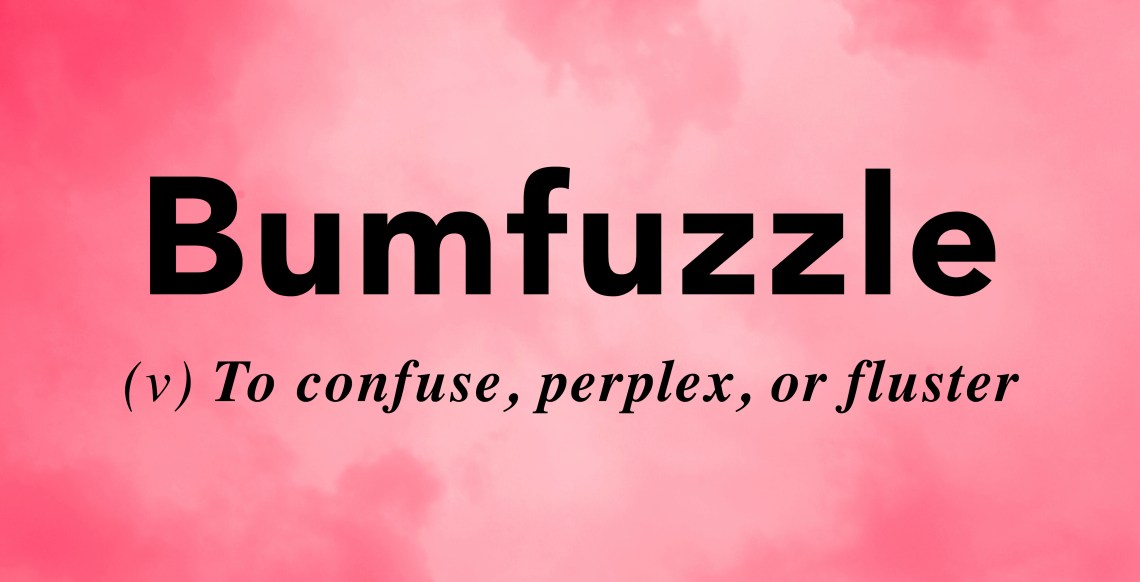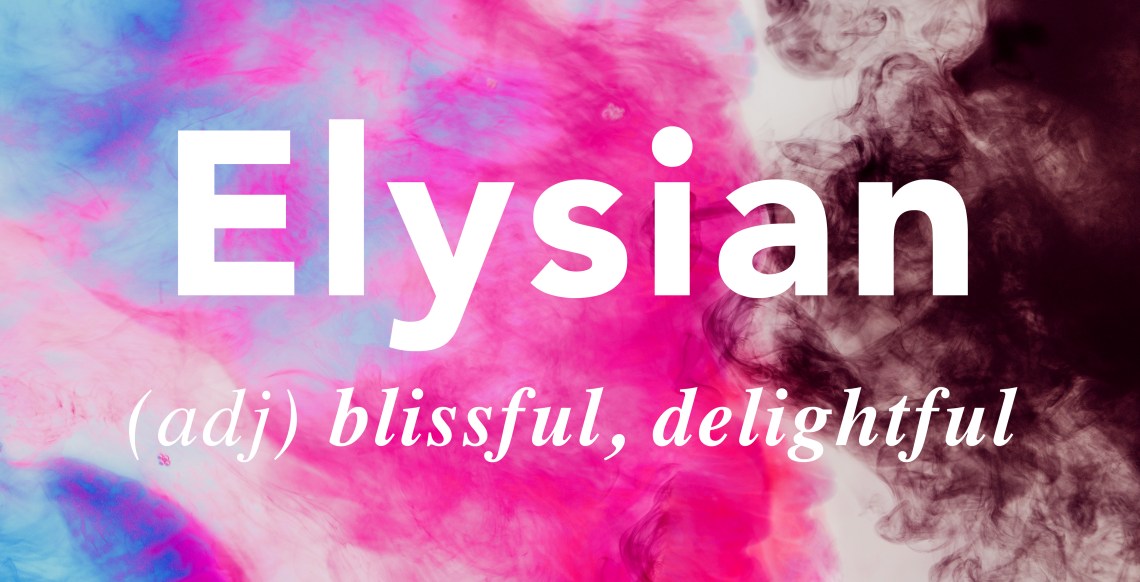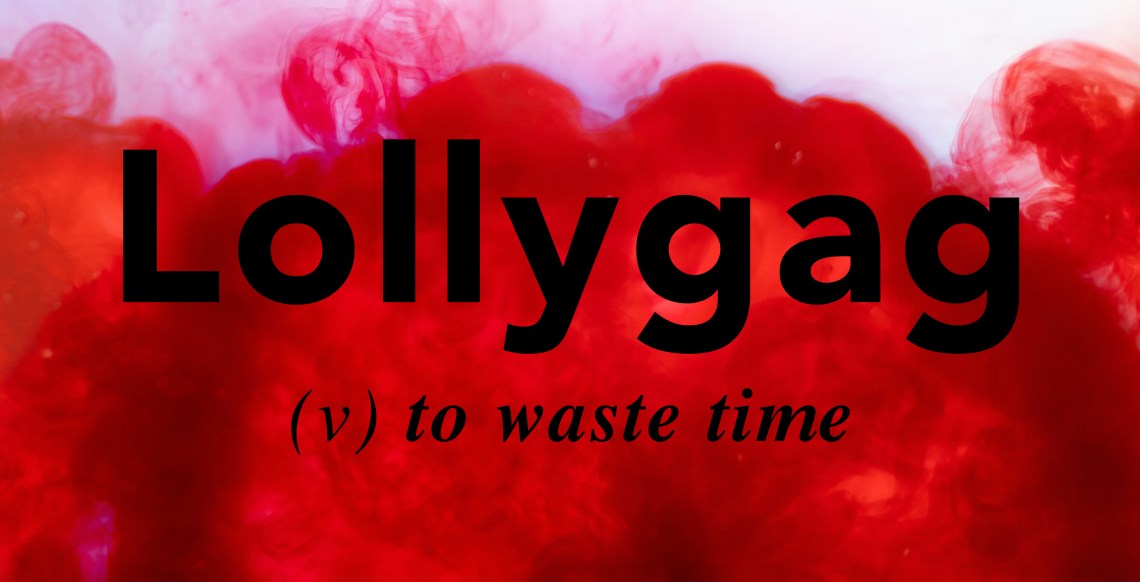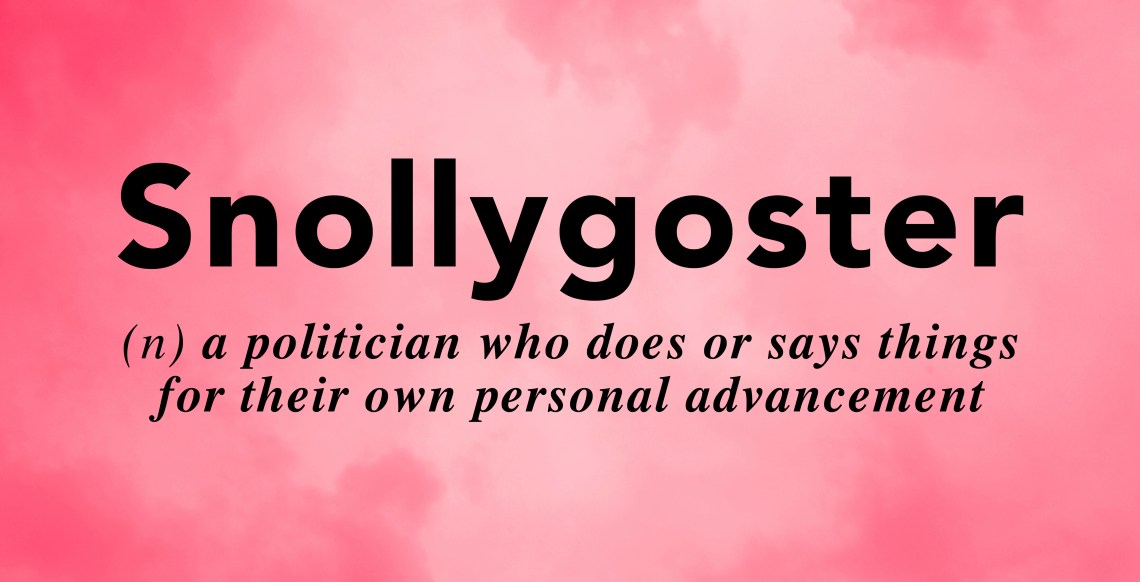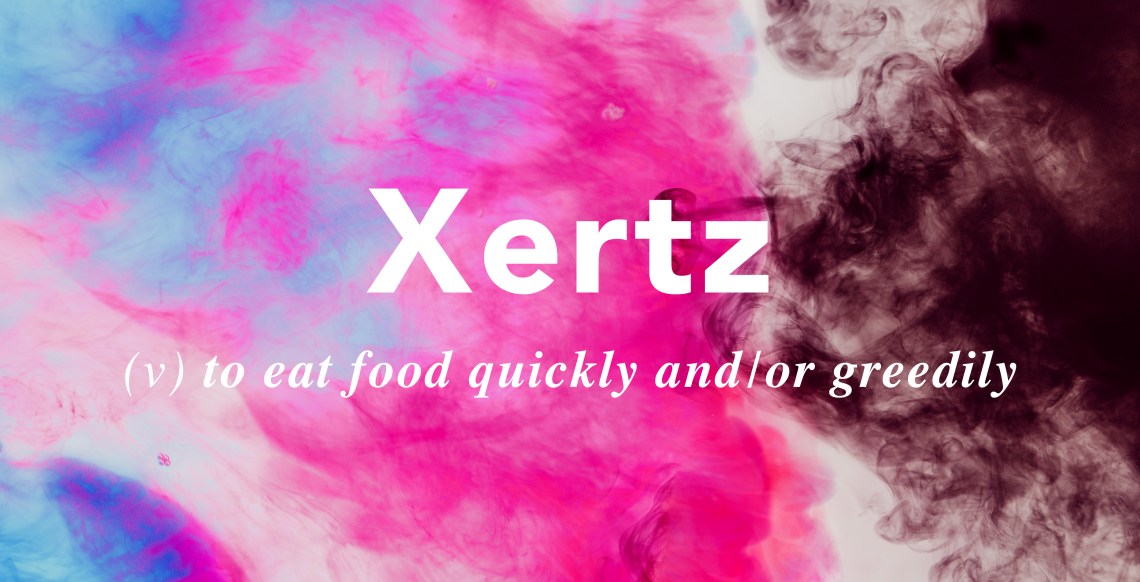These interesting words will help you sound smarter in any conversation.
You send dozens of texts and spend hours talking every single day — but you are reusing most of your words. You are repeating yourself without even realizing you are doing so. There are hundreds of interesting words that you have never even heard of before (or you might have already heard but have no idea how to use them in a sentence).
It’s time to learn something new, to broaden your vocabulary, to sound even more eloquent than you already are. If you can find a way to slip these words into everyday conversation, you are going to look like the most intelligent person in the room.
Aa — a kind of volcanic lava that forms jagged masses with a light frothy texture
Abibliophobia — afraid of running out of things to read
Aquiver — trembling
Aurora — dawn
Aplomb — self-confident
Acnestis — between the shoulder blades and the loins which an animal cannot reach to scratch
Apropos — appropriate
Atrate — dressed in black
Agelast — a person who never laughs
Agastopia — admiration of a particular part of someone else’s body
Bibliopole — a person who buys and sells books, especially rare ones
Biblioklept — a person who steals books
Bibble — eating or drinking noisily
Bloviate — people who talk for a long period of time
Balter — dance clumsily
Bedizen — dress gaudily
Bleb — a blister
Boondoggle — a waste of time and money
Burke — murder without leaving a trace on the body
Borborygm — hungry
Bombinate — making a humming or buzzing noise
Bumbershoot — an umbrella
Cattywampus — in disarray
Collywobbles — a weird feeling in your stomach
Cahoots — secret partnership
Caruncle — the triangular, pink areas at the corner of your eyes
Churlish — rude
Compotation — a drinking party
Conspuer — to spit with contempt
Comeuppance — getting what you deserve
Cancatervate — heaping things into a pile
Cabotage — the exclusive right of a country to control the air traffic within its borders
Cromulent — appearing legitimate but actually being spurious
Donnybrook — an uprising, a melee, or a riot
Darkle — becoming cloudy or dark
Defenestration — the act of throwing someone out of a window
Denouement — the resolution of a narrative
Doodle sack — bag pipes
Duffifie — laying a bottle on its side for some time so that it may be completely drained of the few drops remaining
Draconian — unusually severe
Erinaceous — resembling a hedgehog
Ethereal — Extremely delicate, light, not of this world
Egress — an exit
Ennui — bordem
Erratum — an error in printing
Epistemology — the study of knowledge
Esoteric — knowledge that is only available to a select group of people
Epoch — A particular period of time in history or a person’s life
Eurhythmic — an aesthetically pleasing rhythm or structure
Flibbertigibbet — silly and overly talkative
Foppish — foolish, silly, obsolete
Fugacious — fleeting or transient
Fillip — snapping your fingers
Gubbins — an object that has little or no value
Grawlix — a series of symbols commonly used in comics or cartoons to represent curse words
Grommet — an eyelet of firm material to strengthen or protect an opening or to insulate or protect something passed through it
Hubris — excessive presumption, exaggerated pride or self-confidence
Halfpace — a platform of a staircase where the stair turns back in exactly the reverse direction of the lower flight
Hiraeth — A homesickness for a home you can’t return to, or that never was
Impignorate — pawning something
Interrobang — a punctuation mark designed for use especially at the end of an exclamatory rhetorical question; usually written as ?!
Interfenestration — the space between two windows
Ineffable — Too great to be expressed in words
Jentacular — pertaining to breakfast
Jalopy — an old, decrepit, or unpretentious automobile
Kyphorrhinos — a nose with a bump in it
Lamprophony — loudness and clarity of enunciation
Limerence — being infatuated with another person
Logophile — lover of words
Lothario — a man whose chief interest is seducing women
Malarkey — insincere, foolish talk
Macrosmatic — having a good sense of smell
Meldrop — a drop of mucus at the nose, whether produced by cold or otherwise
Metanoia — a spiritual transformation
Meme — an idea, behavior, style, or usage that spreads from person to person within a culture
Nincompoop — an idiot
Nibling — the gender-neutral term for nieces or nephews
Nefarious — Wicked, villainous, despicable
Numinous — spiritual, supernatural
Nudiustertian — the day before yesterday
Oblivion — the state of being unaware of what is happening around you
Octothorpe — the hashtag symbol
Obelus — the division symbol
Oxter — armpit
Pandiculation — yawning and stretching
Pauciloquent — someone who doesn’t say much
Pilgarlic — a bald head
Phosphenes — the light and colors produced by rubbing your eyes
Petrichor — The pleasant, earthy smell after rain
Preantepenultimate — fourth from last
Paresthesia — the prickly feeling when your limb “falls asleep.”
Poobah — a powerful person.
Pogonotrophy — growing and grooming a beard or other facial hair
Rasher — a thin slice of bacon
Taradiddle — filled with pretentious nonsense
Tergiversate — to change repeatedly one’s attitude or opinions with respect to a caus
Snickersnee — a long, dangerous knife
Salopettes — high-waisted skiing pants with shoulder straps
Supine — Lying face upwards
Sonder — the realization that each passerby has a life as vivid and complex as your own
Schadenfreude — experiencing pleasure or satisfaction from the trouble, failure or humiliation of others
Somnambulist — A person who sleepwalks
Serendipity — The chance occurrence of events in a beneficial way
Snellen chart — the standard eye exam chart.
Scintillate — emitting sparks
Syzygy — an alignment of celestial bodies
Tittynope — a small quantity of something left over
Ulotrichous — having wooly or crispy hair
Quire — two dozen sheets of paper
Quixotic — unrealistically optimistic
Valetudinarian — a sickly or weak person, especially one who is constantly and morbidly concerned with his or her health
Vellichor — the strange wistfulness of used bookshops
Wabbit — exhausted
Widdershins — moving counter-clockwise
Winklepicker — a shoe with a long pointed toe
Yarborough — when the dealer deals a hand without any numbers above nine
Zoanthropy — a person who has delusions that they are a form of animal
Language lets us communicate with each other and share our ideas. Some linguists even suggest that language shapes our knowledge and thought. So, expanding our vocabulary by learning new, interesting words can help us communicate better and have more ideas.
The average English speaking knows around 12,000 -25,000 words, yet the Oxford English Dictionary contains full entries for 171,476 words in current use. So, most of us are missing out on knowing, using, and enjoying thousands of interesting words.
Some linguists suggest that if we don’t have a word for a certain, it is almost impossible to understand that concept. Linguist Benjamin Lee Whorf was an early proponent of this idea, suggesting different linguistic systems affected the thoughts and behaviour of language users.
He studied the language of the Brazilian Piraha people and found that they have no word for quantity. In their language, there is just a word for one, and a word for more than one. This meant that they did not understand the concept of quantity in the same way that we do.
So, if specific words can help us to understand concepts and broaden our knowledge and understanding of the world, it is worth spending some time learning some new, and interesting words.
Here are 15 interesting words to get you started on the journey to crafting a more varied and effective vocabulary.
1. Logophile
I am assuming that as you are reading this article, you may be something of a logophile or ‘lover of words’. Logophile comes from the Greek ‘logos’ meaning speech and ‘phile’ meaning lover or friend.
2. Quixotic
This interesting word is derived from the lead character in Don Quixote written by Miguel de Cervantes. In the novel, Quixote decides to become a knight in order to defend the helpless and destroy the wicked.
Because of this character, we call someone Quixotic if they are unrealistically optimistic or have a comically chivalrous approach to life.
Interestingly, the word scrooge was coined in the same way, a scrooge being a mean person and coming from the character Scrooge in Dickens’ A Christmas Carol.
3. Liminal
Liminal means on the edge of things or between things. It describes marshy landscapes that are neither really land or sea. However, it can also be used to describe states of consciousness. Dreams often occur in the liminal state between sleeping and waking.
4. Esoteric
The word esoteric is used to describe special knowledge that is available only to a select group of people. Belief systems that rely on secret information and practices are often described as esoteric.
Examples of esoteric doctrines include Masonic Lodges, the Theosophical Society, and the Eleusinian mysteries.
5. Numinous
Numinous is a delightful word that means spiritual or supernatural. The word can be applied to anything that is mysterious or surpasses our human understanding.
6. Epistemology
Epistemology is the study of knowledge. This branch of philosophy is specifically concerned with the origin, nature, methods, and limits of human knowledge. So, I guess it really describes the process of thinking about thinking.
7. Schadenfreude
Though schadenfreude is a lovely sounding word, feeling it is not something to be proud of. Schadenfreude means experiencing pleasure or satisfaction from the trouble, failure or humiliation of others.
8. Loquacious
Most of us know someone who is a little loquacious. They talk – a lot! Unfortunately, most of the things they talk about are interesting only to them. This makes them the worst person to get stuck with at a dinner party.
9. Hubris
Hubris is a concept that originated in ancient Greece and today describes excessive presumption, exaggerated pride or self-confidence – even arrogance. It’s a shame that such a nice word describes such a horrible personality trait.
10. Bibliophile
A Bibliophile is a lover of books. The word comes from the Greek biblion ‘book’ + philos ‘lover or friend’. Bibliophiles have a particular interest in beautiful or rare books and many also collect antiques and first editions.
11. Eurhythmic
Eurhythmic means having an aesthetically pleasing rhythm or structure. So, I guess that’s what makes it the perfect name for a band.
12. Fugacious
Fugacious means fleeting or transient. It is similar to the even more attractive ephemeral, which means lasting a very short time.
Many things in life are beautiful but fleeting, the life of a mayfly, the moment the sun goes down on a glorious summer’s day, or the brief time a rainbow decorates the sky. Perhaps it is their fugacious nature that makes these moments so special.
13. Elysian
If something is elysian, it is blissful or delightful. The word comes from the Greek “Elysian field,” where the heroic and the virtuous go after death. So, I suppose it is similar to heavenly.
14. Metanoia
Metanoia describes a profound, usually spiritual, transformation. This unusual word perfectly describes the process of changing one’s mind, heart, spiritual direction, or way of life in a radical way.
This seems like a good word to use instead of the overused ‘enlightened’ or ‘spiritual awakening‘.
15. Lollygag
Lollygag is my favorite new interesting word. It means to spend time in an aimless or lazy way, to idle about or goof off. So, I guess lollygagging is the perfect way to spend an afternoon.
So that’s enough interesting words for today. I am off to spend the afternoon lollygagging.
We’d love to hear your favourite interesting words. Please share them with us in the comments.
References:
- www.collinsdictionary
- www.oed.com
- Author
- Recent Posts
Contributing writer at Learning Mind
Kirstie Pursey holds a diploma in creative writing from the Open University and works as a writer, blogger, and storyteller. She lives in London with her family of people, dogs, and cats. She is a lover of reading, writing, being in nature, fairy lights, candles, fireside, and afternoon tea.
Copyright © 2012-2023 Learning Mind. All rights reserved. For permission to reprint, contact us.
Published November 9, 2017
Updated May 4, 2018
From «jumbo» to «namby-pamby» to «nimrod,» these interesting words have surprisingly fascinating backstories.
Jumbo
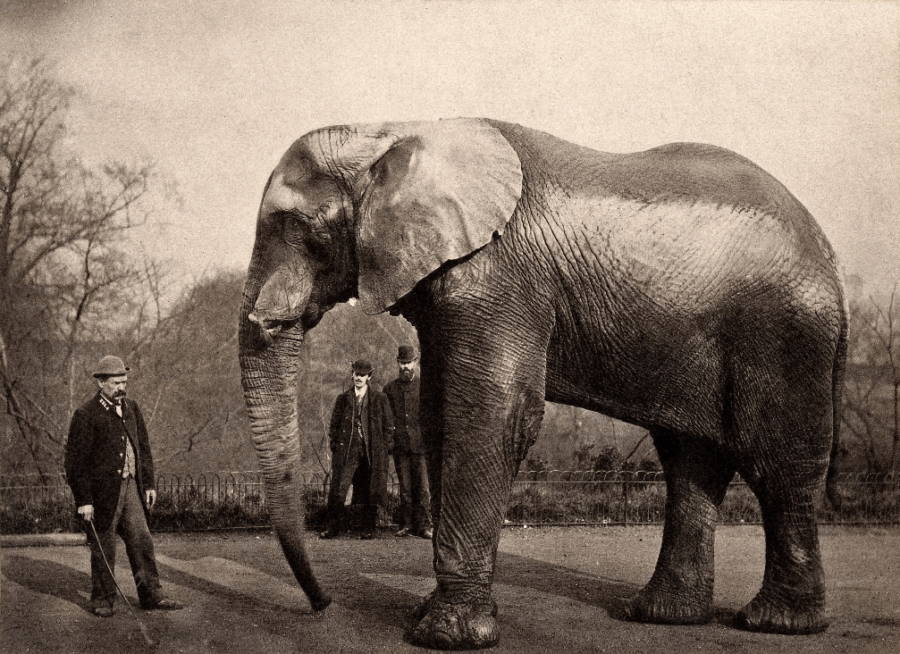
The word «jumbo» was most likely originally the word for «elephant» in a certain West African language. It took on the meaning of «large» in English when an elephant in a London zoo was named Jumbo in 1860 (pictured).Wikimedia Commons
Avocado
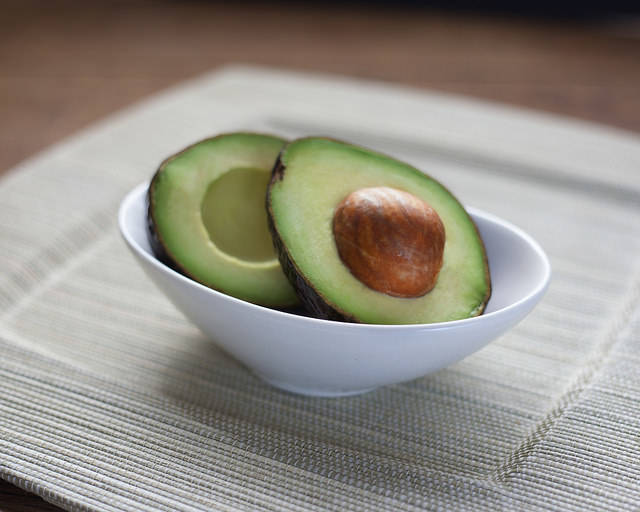
The word «avocado» is derived from «ahuacatl,» a word in the Aztec Nahuatl language that means «testicle.» Kjokkenutstyr/Wikimedia Commons
Jeans

Jeans were named after the place in which their fabric originated: Genoa, Italy.Pixabay
Ketchup

The word «ketchup» is derived from the Chinese word «ke-tsiap,» a pickled fish sauce. The term came to mean a wide variety of condiments, before becoming associated specifically with tomato ketchup.Pixabay
Whiskey

The word «whiskey» comes from the Gaelic phrase «uisge beatha,» which literally means «water of life.»Wikimedia Commons
Assassin

The word «assassin» derived from the word «hashishiyyin,» meaning hashish-users in Arabic, because of a fanatical Muslim sect during the Crusades that used to smoke hashish and then murder leaders on the opposing side.Wikimedia Commons
«Smart Aleck»

The term «smart aleck» refers specifically to a pimp in 1840s New York named Alec Hoag who teamed up with his wife to trick people out of their money.Green Bay Press-Gazette
Buck
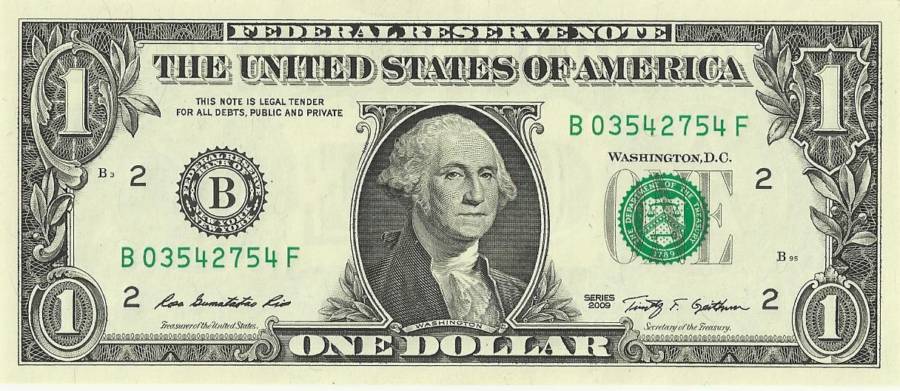
«Buck» as a slang term for an American dollar comes from the fact that, on the American frontier, deerskins, or buckskins, were often used as units of commerce.Wikimedia Commons
Nimrod
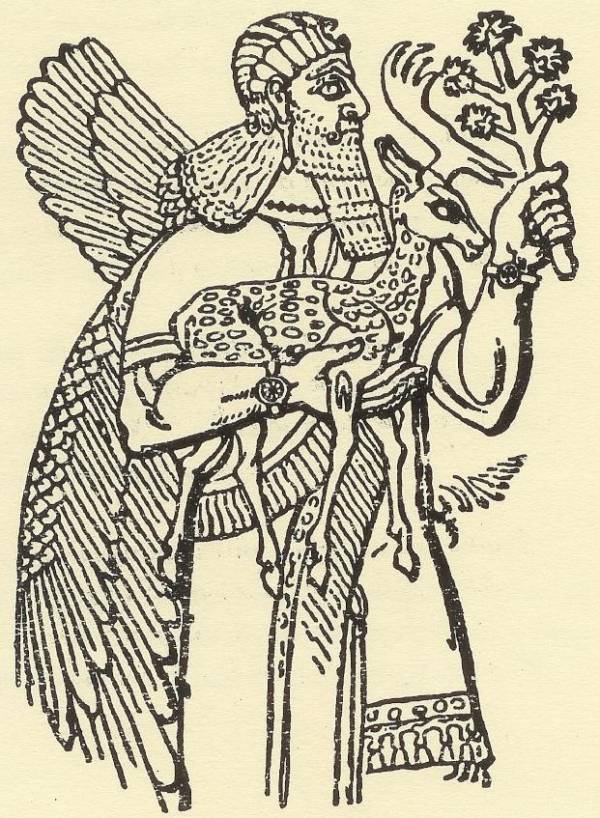
«Nimrod» was originally the name of a mighty hunter in the Bible. The name took on its negative connotation after it was used sarcastically in a Bugs Bunny cartoon from the 1940s.Wikimedia Commons
Lemur

The word «lemur» comes from a Latin word that means «spirit of the dead.» Carl Linnaeus, the Swedish scientist that named these creatures, cited their nocturnal nature as the influence for the name.Wikimedia Commons
Kibosh

«Kibosh,» as in «to put the kibosh on something,» comes from the Gaelic «cie bais,» which mean «cap of death,» referring to the hood that executioners used to wear.Bettmann/Getty Images
Pamphlet
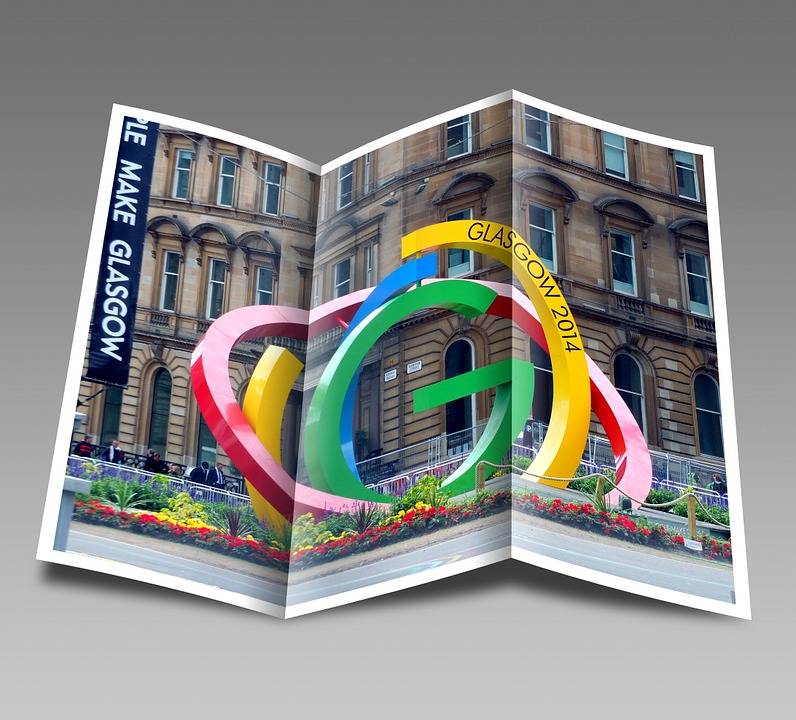
«Pamphlet» comes from the title of a Latin love poem called «Pamphilus, seu de Amore,» which was supposedly passed from person to person, as a pamphlet would be today.Pixabay
Namby-Pamby

The phrase «namby-pamby» originated as an insult created by British satirist Henry Carey based on the first name of poet Ambrose Philips (pictured) for his use of flowery language.Ken Welsh/Design Pics/Corbis/Getty Images
Clue

The word «clue» is derived from the archaic English word “clew,” meaning a ball of yarn, because in Greek mythology, Ariadne gives Theseus a ball of yarn to help him find his way out of the Minotaur’s labyrinth.Max Pixel
Tragedy

The word «tragedy» comes from the Greek «τραγῳδία» (tragodia), meaning the song of the male goat.Tim Green/Flickr
Gerrymander
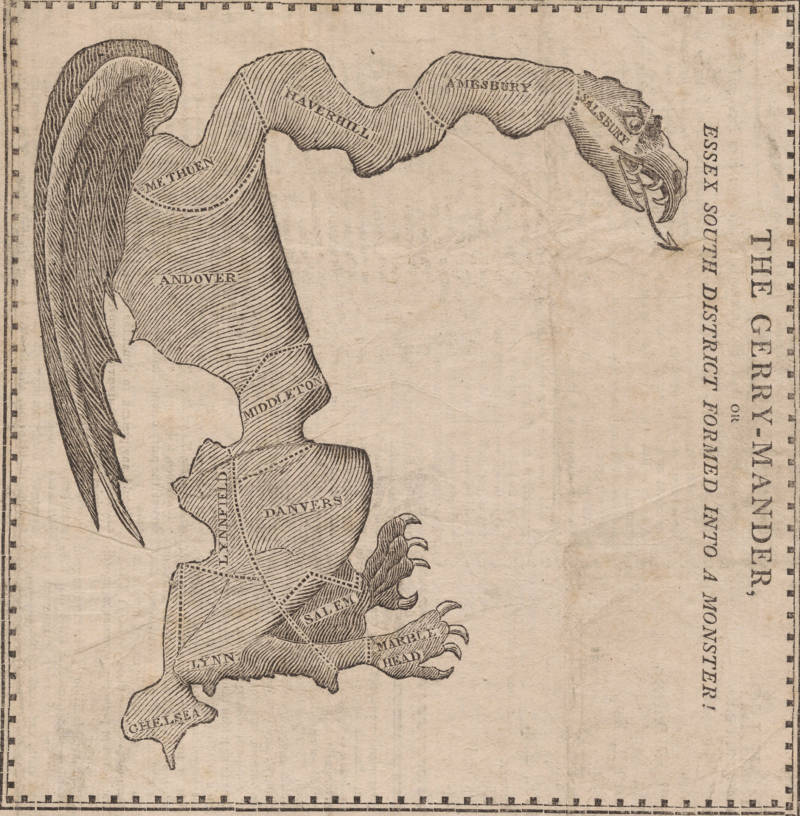
The political term «gerrymander» originated in a 19th-century political cartoon that depicted one of the new districts created by the redistricting of Massachusetts as a salamander, due to its shape. Because of the shape and the fact that the redistricting was carried out by Governor Elbridge Gerry, the word «gerrymandering» was born.Wikimedia Commons
Quarantine

«Quarantine» is the Venetian word for «40 days,» referring to the length of time during which boats had to forego contact with the shore after arriving in port if they were suspected of being infected.Wikimedia Commons
Mortgage

The word «mortgage» comes from the French expression «mort gage,» meaning «death pledge.»
Pixabay
Boycott

The term «boycott» comes from the name of Captain C. C. Boycott, an English land agent in Ireland, whose tenants refused to do business with him in 1880, in an attempt to get their rents reduced.Wikimedia Commons
Noon

«Noon» comes from the Latin phrase nona hora or «ninth hour,» because in Ancient Rome, noon was actually around 3 p.m.Wikimedia Commons
Whether taking on loanwords from foreign languages or developing new words out of strange origins, the English language is filled with interesting words that have truly fascinating backstories.
«Ketchup,» for example, is just one word that’s used throughout English-speaking countries, but few realize that the word originated with the Chinese word «ke-tsiap» (鮭汁) which referred most commonly to a fermented fish sauce.
Over time, that term made its way to Europe through trading vessels, where people began to refer to foreign sauces as «ketchup,» a distorted version of the Chinese word. Eventually, «ketchup» came to refer to tomato ketchup in most of the world.
And «ketchup» is far from alone. Check out the unexpected origins of some of the English language’s most interesting words in the gallery above.
After this look at some of English’s most interesting words, discover the famous last words of 41 historical greats. Then, check out interesting quotes that will change how you see the world. Finally, have a look at the funniest insults from history.
Bizarre
Posted by List25 Team, Updated on May 15, 2014
Did you know that the word “mortgage” comes from a French expression meaning “death pledge”? These are 25 interesting and somewhat strange word origins.
25
Jumbo was most likely originally the word for «elephant» in a west African language. It took on the meaning of «large» when an elephant in London zoo was named Jumbo in 1860
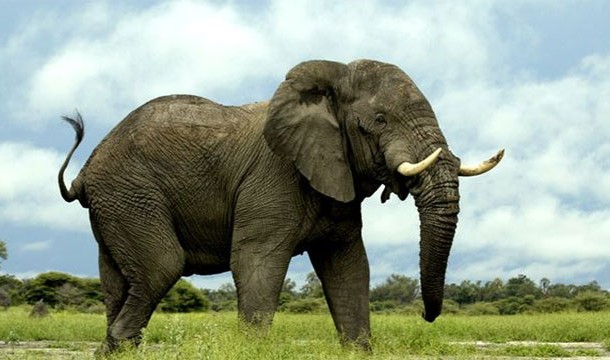
24
Quarantine comes from the French «qarante» for 40. Whenever a ship arriving in port was suspected of being infected it had to forego contact with the shore for a period of about 40 days.

23
Hazard comes from the Arabic «al zahr» which means «the dice». The term came to be associated with dice during the Crusades and eventually took on a negative connotation because games of dice were associated with gambling

22
Disaster comes from the Greek «dis» meaning bad, and «aster», meaning star. The ancient Greeks used to blame calamities on unfavorable planetary positions.
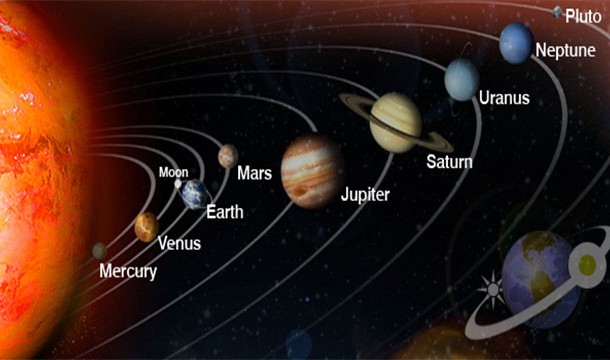
21
Lemur comes from a Latin word that means «spirit of the dead». The person that named them cited their nocturnal nature as a source of influence.

20
Loophole (or murder hole) originally referred to the slits in castle walls that archers would shoot their arrows through.

19
Nice comes from a Latin word meaning «ignorant»

18
Muscle comes from a Latin root meaning «little mouse». Apparently people used to think muscles looked like little mice under their skin.

17
War comes from a Germanic root that meant «to confuse»

16
Heresy comes from a Greek word meaning choice

15
Pamphlet comes from the title of a Latin love poem called Pamphilus that was supposedly passed from person to person
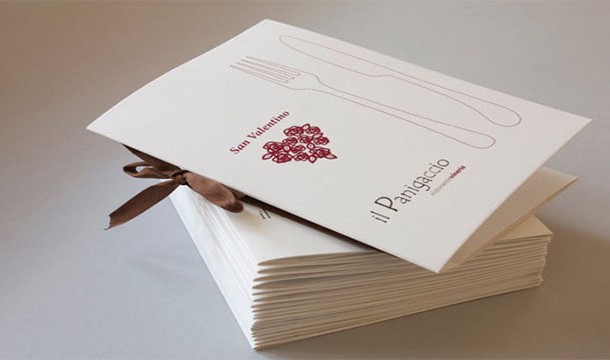
14
Lunatic is derived from the Latin word «luna» meaning «moon». It originated from the belief that insanity is caused by changes in the moon.

13
Berserk comes form ancient Norse fighters that were known as Berserkers

12
Jeans were named after their place of origin, Genoa, Italy.

11
Curfew comes from a combination of two French words — «couvrir» and «feu». Literally this means to «cover fire».

10
Lukewarm is actually a reduntant. Luke meant «warm» in Middle English so lukewarm technically would mean «warm warm».

9
The word Soccer actually originated in the United Kingdom. Association Football was shortened to «socca» (derived from the middle of the word association). This turned into the word «soccer» that is still used in the US, Canada, and Australia.

8
Mortgage comes from the French expression meaning «death pledge»

7
Nightmare comes from an old English word «mare» that refers to a demon who suffocates you in your sleep

6
Denim comes from Nimes, France. It was therefore originally called serge de Nimes or «fabric from Nimes». The «serge» soon disappeared and left us with «de Nimes».

5
Buck, the slang term for an American dollar comes from the fact that on the American frontier deerskins were used as units of commerce.

4
Addict comes from ancient Rome when soldiers were awarded slaves known as «addicts», which is the Latin word for slave. It eventually came to refer to a person who was a slave to anyone or anything.

3
Noon comes from the Latin phrase «nona hora» or «ninth hour». In ancient Rome noon was actually around 3pm

2
Malaria comes from the Latin phrase «mal aria» meaning «bad air» and was used to describe the atmosphere around the swamps of Rome.

1
Tragedy comes from the Greek word «tragodia» which means «song of the male goat».
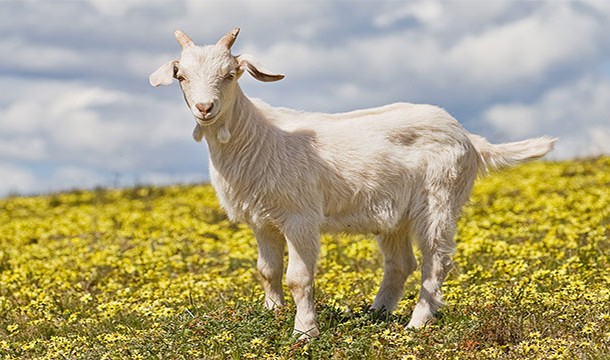
Lists Going Viral Right Now
Show Us Your Love
Join Over 2 Million+ List25 Fans
2 words for each letter in the alphabet. The words are fun to say and have a cool meaning. 52 words that make you sound smart when you use them.These words are great vocabulary builders.
52 words
4,869 learners
Learn words with Flashcards and other activities
Other learning activities
Full list of words from this list:
-
zenith
the highest point of something
-
zealot
a fervent and even militant proponent of something
-
yearn
desire strongly or persistently
-
yawner
a person who yawns
-
xenophobia
a fear of foreigners or strangers
-
x-axis
the horizontal axis in a plane coordinate system
-
wonky
turned or twisted toward one side
-
wanton
a lewd or immoral person
-
vermillion
of a vivid red to reddish-orange color
-
vague
lacking clarity or distinctness
-
unique
the single one of its kind
-
uncanny
surpassing the ordinary or normal
-
tenacious
stubbornly unyielding
-
tangible
perceptible by the senses, especially the sense of touch
-
serene
not agitated
-
saquinavir
a weak protease inhibitor used in treating HIV
-
rhetorical
relating to using language effectively
-
rambunctious
noisy and lacking in restraint or discipline
-
quixotic
not sensible about practical matters
-
quell
suppress or crush completely
-
pique
call forth, as an emotion, feeling, or response
-
paradigm
a standard or typical example
-
oxymoron
conjoined contradictory terms
-
optimistically
with optimism; in an optimistic manner
-
nostalgic
unhappy about being away and longing for familiar things
-
narrative
an account that tells the particulars of an act or event
-
misanthrope
someone who dislikes people in general
-
melancholy
a constitutional tendency to be gloomy and depressed
-
lucid
transparently clear; easily understandable
-
lethargic
deficient in alertness or activity
-
ken
range of what one can know or understand
-
karma
effects of one’s actions that determine his or her destiny
-
jurisdiction
the territory within which power can be exercised
-
jejune
lacking interest or significance or impact
-
irony
incongruity between what might be expected and what occurs
-
integrity
an undivided or unbroken completeness with nothing wanting
-
hypnosis
a state that resembles sleep induced by suggestion
-
hyperbole
extravagant exaggeration
-
guise
an artful or simulated semblance
-
gallivant
wander aimlessly in search of pleasure
-
fortitude
strength of mind that enables one to endure adversity
-
fervent
characterized by intense emotion
-
esoteric
understandable only by an enlightened inner circle
-
empathy
understanding and entering into another’s feelings
-
dubious
fraught with uncertainty or doubt
-
disposition
your usual mood
-
cynical
believing the worst of human nature and motives
-
capricious
determined by chance or impulse rather than by necessity
-
bypass
avoid something
-
benevolent
showing or motivated by sympathy and understanding
-
ambiguous
having more than one possible meaning
-
alliteration
use of the same consonant at the beginning of each word
Created on January 4, 2013
(updated January 4, 2013)
Sometimes there’s a word for things… but that word is just out of reach, or it might even be one we’ve never heard of, yet we know in our bones it’s out there waiting patiently for one perfect moment of discovery.
It’s a beautifully descriptive world out there, full of interesting words that encapsulate the ever-swirling universe.
Here are but a few weird, wonderful, unique, cool sounding, awesome, strange, and obscure words to decorate your universal tree.
Effulgent
Shining brightly; radiant; emanating joy or goodness
A word for your best friend’s soul. A word that an act of grace teaches your heart. A word for cleaving the darkness. A word that signals a softening of the hard places. Love for the light that you find.
“The moment she held her child was forever, in her mind, marked as effulgent and sacred.”
Numinous
Having a strong religious or spiritual quality; indicating or suggesting the presence of a divinity.
An infinitely gentle word that contains healing, especially when the word is welcomed inward; we often see the spiritual outside us, but rarely apply it to ourselves.
“He stood before the ancient oak and felt its numinous essence speak the forgotten truths.”
Ardent
Enthusiastic or passionate.
We can be ardent lovers, ardent fans, ardent proponents of the social good, or very, very particular about what we’ll allow on pizza!
“They clasped hands ardently, and knew that the first step into their new house would be a step toward an unimaginable future.”
Boisterous
Noisy, energetic, and cheerful; rowdy, wild, or stormy.
Life lived – rather than placed on layaway and thought of lovingly from time to time – is boisterous, for it is full of laughter, unguarded emotions, worthwhile sex, and the ability to accept joy as a deserved thing.
“The boisterous fans kept songs and smiles flowing from tavern to tavern.”
Puissant
Having great power or influence.
Real power isn’t the display of power, but the restraint of display. If the sun decided to go nova every day, we wouldn’t be here. To be properly puissant, one must nourish and allow the world’s good to grow.
“The Mahatma remained a puissant advocate for peace throughout the world, and was much loved.”
Affable
Friendly, good-natured, or easy to talk to.
Life is casual, comfortable, and quite easy to talk to, provided we stop thinking of a litany of demands as a conversation. If it’s hard to be easygoing, there’s imbalance somewhere.
“She was considered so affable that advice from her was treated as soulful counsel.”
Lithe
Thin, supple, and graceful.
A fascinating dancer of a word, suggesting movement, flexibility, and purpose. Lightness of the mind and heart.
“The ninjas were lithe on their feet, except for Fred, the clumsy fool.”
Parlous
Full of danger or uncertainty; precarious.
Like fire that provides heat. Like a summit daring to be soared from. Like never knowing if the person you’re attracted to will say yes to a first date. Like a rollercoaster with a short line and you know you really want to.
“The mouth of the cave loomed, parlous but inviting, for there was undoubtedly mystery inside, and she craved mystery most of all.”
“Creageous”
There’s a podcast about writing called Archivos, and the host often uses this word of his own making. It refers to the divine blending of creative and courageous impulses needed to put one’s self (or one’s work) out without fear for the wide world to see.
“Be creageous in all things.”
You may also like (article continues below):
- 15 Inspirational Songs And Lyrics To Lift You Up And Motivate You (Listen Here)
- 9 Interesting Things To Talk About With Your Friends
- Words Of Encouragement: 55 Uplifting Quotes To Motivate And Inspire
- 10 Traits Of A Deep Thinker
Audacious
A 2-fold word: showing a willingness to take surprisingly bold risks; showing an impudent lack of respect.
Certain things should entice you to be audacious at times, and you, being a wonderful engine of whee, should entice others to be audacious. Boldness is about stepping out of comfort zones, preconceived notions, and flat out humdrum.
“Is there anyone more audacious than a gambler down to his last coin?”
Sybaritic
Fond of sensuous luxury or pleasure; self-indulgent.
How delightful to have a sybaritic life. The word gives the feel of fur-lined hugs, and endless fondue without consequence. It’s a sensual word, full of tastes, textures, and light waves that caress things to tell us what they are.
The world is an ocean in motion, a thigh glimpsed briefly, a scruffy beard pressed to a soft cheek, and every possible combination of lips in the sacred formation of kisses.
“Their sybaritic tastes matched perfectly, for one worshipped at the feet of Dionysus, and the other was never far from creating sweet treats of magic and delight.”
Indefatigable
Persisting tirelessly.
This is a word of strength, a word of solace, and one of courage. We don’t give up on what we care about, who we care about, or the dreams the world often tells us to forget about.
“Indefatigable, John Henry placed his hammer on the ground, wiped the sweat from his brow, and bent once more to pick it up, his eyes on the mountain the entire time.”
Inviolate
Free or safe from injury or violation.
A word of strength when consciously used with compassionate conscience. Trust is given with this word in mind. Promises, too. It is the rock in a land of mud.
“Freedom of the press should be an inviolate guarantee.”
Susurration
Whispering, murmuring, or rustling.
Susurration speaks of gentleness, speaks of waves, speaks of flow. It is a poem in one word suggesting the constant hum of the universe.
“A strong wind blew over the dried leaves, creating a susurration that made him stop to listen until it was gone.”
Splendiferous
Splendid.
See: blanket forts, pallet picnics, movies neither of you care if you fall asleep on, a kiss, a sunset, a sunrise, a friend’s sincere smile, a moment of insight, a large, warm slice of delicious pie.
“The fact that they were friends for life was splendiferous indeed.”
Resplendent
Attractive and impressive through being richly colorful or sumptuous.
The reason most of us only have one pair of special underwear or that one outfit wherein we feel we should be announced as deities, is that this is a word meant for rare and judicious use, wherein we, the world, a bird of paradise, or a child freshly dressed for the first day of school, get to shine just as brightly, and in the exact same hues, as a brand new nebula.
“In matching hues of blues, golds, and reds, the dancers painted the stage, resplendent in motion and form.”
Stupendous
Extremely impressive.
That’s what we are. Humans. Extremely impressive. Stupendous presences upon this Earth. That’s what the world is. As for the universe? All you have to do is look upward at night. The moon and the stars dress up to take you out every evening. Isn’t that simply stupendous?
“Is there anything more stupendous than the view of a waterfall from the air?”
Ineffable
Too great or extreme to be expressed or described in words.
Love is ineffable. Joy is ineffable. Deep feelings of compassion are ineffable. The universe in all its scope, grandeur, pain, life, and beauty: utterly ineffable.
“The ineffable dignity that we should accord all life serves to elevate and bind us in solidarity.”
All definitions (bar Creageous) taken, with much thanks, from The Oxford English Dictionary website.
HERE ARE A FEW instances where other languages have found the right word and English simply falls speechless.
1. Toska
Russian — Vladmir Nabokov describes it best: “No single word in English renders all the shades of toska. At its deepest and most painful, it is a sensation of great spiritual anguish, often without any specific cause. At less morbid levels it is a dull ache of the soul, a longing with nothing to long for, a sick pining, a vague restlessness, mental throes, yearning. In particular cases it may be the desire for somebody or something specific, nostalgia, love-sickness. At the lowest level it grades into ennui, boredom.”
2. Mamihlapinatapei
Yagan (indigenous language of Tierra del Fuego) — “The wordless, yet meaningful look shared by two people who both desire to initiate something but are both reluctant to start.” (Altalang.com)
3. Jayus
Indonesian — “A joke so poorly told and so unfunny that one cannot help but laugh.” (Altalang.com)
4. Iktsuarpok
Inuit — “To go outside to check if anyone is coming.” (Altalang.com)
5. Litost
Czech — Milan Kundera, author of The Unbearable Lightness of Being, remarked that, “As for the meaning of this word, I have looked in vain in other languages for an equivalent, though I find it difficult to imagine how anyone can understand the human soul without it.” The closest definition is a state of agony and torment created by the sudden sight of one’s own misery.
6. Kyoikumama
Japanese — “A mother who relentlessly pushes her children toward academic achievement.” (Altalang.com)
7. Tartle
Scottish — The act of hestitating while introducing someone because you’ve forgotten their name. (Altalang.com)
8. Ilunga
Tshiluba (Southwest Congo) — A word famous for its untranslatability, most professional translators pinpoint it as the stature of a person “who is ready to forgive and forget any first abuse, tolerate it the second time, but never forgive nor tolerate on the third offense.” (Altalang.com)
9. Prozvonit
Czech — This word means to call a mobile phone and let it ring once so that the other person will call back, saving the first caller money. In Spanish, the phrase for this is “Dar un toque,” or, “To give a touch”; In French, the phrase for this is “Biper quelqu’un,” or, “To beep someone.” (Altalang.com)
10. Cafuné
Brazilian Portuguese — “The act of tenderly running one’s fingers through someone’s hair.” (Altalang.com)
11. Torschlusspanik
German — Translated literally, this word means “gate-closing panic,” but its contextual meaning refers to “the fear of diminishing opportunities as one ages.” (Altalang.com)
12. Wabi-Sabi
Japanese — Much has been written on this Japanese concept, but in a sentence, one might be able to understand it as “a way of living that focuses on finding beauty within the imperfections of life and accepting peacefully the natural cycle of growth and decay.” (Altalang.com)
13. Dépaysement
French — The feeling that comes from not being in one’s home country.
14. Schadenfreude
German — Quite famous for its meaning, which somehow other languages have neglected to emulate, this refers to the feeling of pleasure derived by seeing another’s misfortune. I guess “America’s Funniest Moments of Schadenfreude” just didn’t have the same ring to it.
15. Tingo
Pascuense (Easter Island) — Hopefully this isn’t a word you’d need often: “the act of taking objects one desires from the house of a friend by gradually borrowing all of them.” (Altalang.com)
16. Hyggelig
Danish — Its “literal” translation into English gives connotations of a warm, friendly, cozy demeanor, but it’s unlikely that these words truly capture the essence of a hyggelig; it’s something that must be experienced to be known. I think of good friends, cold beer, and a warm fire. (Altalang.com)
17. L’appel du vide
French — “The call of the void” is this French expression’s literal translation, but more significantly it’s used to describe the instinctive urge to jump from high places.
18. Ya’aburnee
Arabic — Both morbid and beautiful at once, this incantatory word means “You bury me,” a declaration of one’s hope that they’ll die before another person because of how difficult it would be to live without them.
19. Duende
Spanish — While originally used to describe a mythical, spritelike entity that possesses humans and creates the feeling of awe of one’s surroundings in nature, its meaning has transitioned into referring to “the mysterious power that a work of art has to deeply move a person.” There’s actually a nightclub in the town of La Linea de la Concepcion, where I teach, named after this word. (Altalang.com)
20. Saudade
Portuguese — One of the most beautiful of all words, translatable or not, this word “refers to the feeling of longing for something or someone that you love and which/who is lost.” Fado music, a type of mournful singing, relates to saudade. (Altalang.com)

